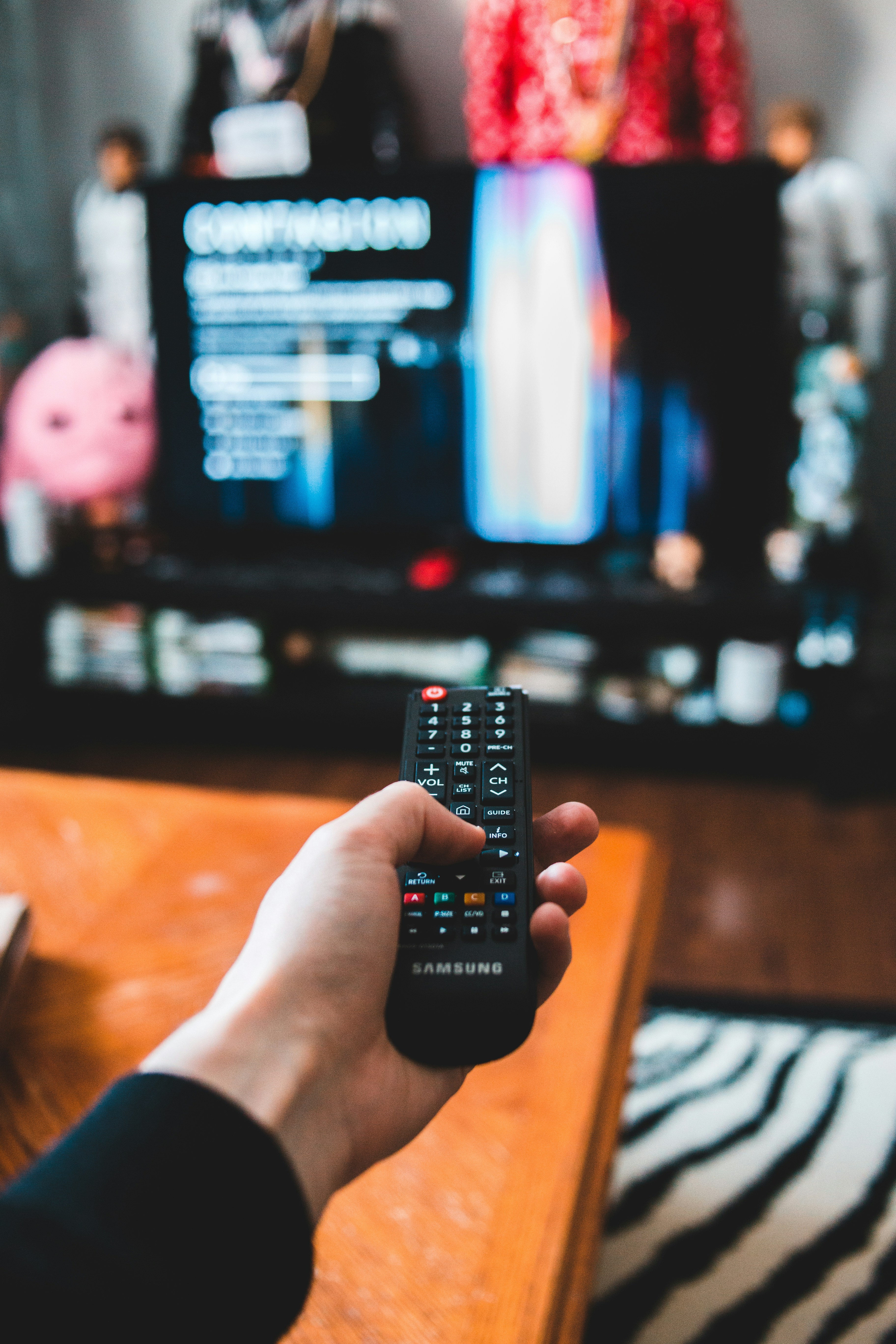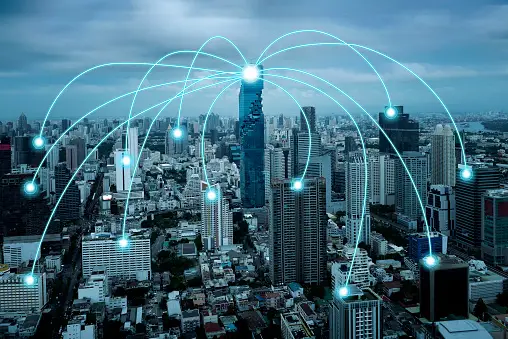Explore the transformative journey of television technology—from its early mechanical days to today’s streaming era. Discover how TV has united people, shaped culture, influenced politics, and democratized education. From living rooms to mobile screens, television continues to redefine our shared experiences.
Introduction
A television used to occupy the rectangular space mostly present at the corners of the living room but it has come a long way. Starting from being one of the greatest mechanical wonders of the twentieth century to being one of the most widely accepted entertainment mediums today, television has made a significant impact in society’s life. In this article, i aim to discuss how the technology of television has affected the world and society across cultures and beyond; not only in the areas of politics but also communication, and even learning.
Television Back Then
Television was invented during early decades of the twentieth century and its advent was first seen on January 26, 1926 when Scottish engineer John Logie Baird unveiled the first ever televisor. The mechanical “Televisor” of John Logie Baird was shipped and received higher success than the other all-electronic systems in America for television broadcasting and by the ending of the decade, Baird broadcasted experimental 30-line television. These early broadcasts can be accredited of as laying down the foundation of media, communication and entertainment.
Older television sets were distinguished by wooden cabinets in which they were placed in homes, specifically in the living room area. This was evident in the many detailed engravings that were incorporated in the pieces as they depicted the importance of the medium in the form of television as a new way of entertainment. These screens were events where families congregated in living rooms to watch and therefore created memories and cultural experiences. Specific televised films like “Star Wars” entered popular culture and became a part of generations, childhoods, and careers in the television industry for generations.
Older television sets were distinguished by wooden cabinets in which they were placed in homes, specifically in the living room area. This was evident in the many detailed engravings that were incorporated in the pieces as they depicted the importance of the medium in the form of television as a new way of entertainment. These screens were events where families congregated in living rooms to watch and therefore created memories and cultural experiences. Specific televised films like “Star Wars” entered popular culture and became a part of generations, childhoods, and careers in the television industry for generations.
Television Now
Jump to the present, television has expanded its roles beyond what one can imagine of traditional type media. It creates a very diversified space, one which can no longer be defined by the box like in the case of the living room. We no longer sit confined to the type of programming provided through cable and satellite networks, OTT, streaming services, and mobiles have taken over. TVs have evolved into a form of entertainment that aims to suit the personal consumer’s needs and wants. Whether it is consuming a series on the tablet during a ride or live sports on a smart TV, there is always a sense of the audience engaging with content.
Impact on Society
Television has changed the world in several ways:
1. Uniting People
It has been seen that this feature of television has no geographical barriers in maintaining the solidarity and togetherness of people. Wright’s gonna go down in history as the first man who took steps on the moon in front of millions of people who watched his thin black and white images on their screens in 1969. It was a moment of togetherness as two strangers were bonding with pride due to the advancement of technology that humanity offered to the world. In the same way, watching special programmes such as Olympics, reality shows or even crisis worldwide makes us feel slightly more connected. Television also fills voids and thus people with the opportunity to be a witness of the events that take place in the world at large, doesn’t necessarily have to be physically present at that location.
2. Shaping Culture
Most of the television changes are culture building blocks. Such cultural messages as TV shows, music videos, and other commercials are known to actively shape the behavior, preferences, and the ways people speak. Remember the “Friends” phenomenon? The popular phrases used by the show hosts (“How you doin’?” and “We were on a break!”) became a regular language feature. MTV of the 80s had its evolution cross cutting with the emergence of pop icons such as Michael Jackson and Madonna. The medium is television and it portrays the society, scrutinizes it and at times offer society new ideas. As seen in the recent groundbreaking inclusion of television shows that also depict mental health issues, television can facilitate a change in culture paradigms.
3. Influencing Politics
There is no conceivable world where television is not involved in political affairs in one way or another. Debate television during times of an election enables citizens to evaluate the stand and conduct of the prospective leaders. These includes the specific political campaign advertisements- sometimes professionally made while others are satire -which influence the perception of the masses. Television offers current event information, which gives people a way to view political leaders and the state of world events more closely than ever before. This is something that comes in mind in moments like when listening to Barack Obama giving speeches. While the words of political leaders require the physical presence to reach thousands, television increases the volume of the message to millions. However, it also brings into the picture bias which the media inherently possesses and can easily influence the democratic systems using sensationalism.
4. Advertising Transformation
No longer are commercials just another way to advertise a product out there; they are moments of cultural reference. Super Bowl ads are perhaps among the most eagerly awaited part of the games, partly due to the considerable effort and money that is poured into them. Consumers also point to television as a medium where brands seek to elicit an emotional connection with the consumer. They still make us think when we recall such commercials as Coca-Cola’s ‘polar bears’ . One major criticism on television advertising contributes to the consumer behavior process so as to affect our decisions when choosing certain products to buy. However, such shifts to the ad-free streaming services do disrupt conventional paradigms regarding advertising, placing additional pressure on marketers.
5. Democratizing Education
It’s a fallacy to think of television as merely a fun source of entertainment; on the contrary, television is a potent way of learning. In this sense, documentaries, science programs, and historical series are valuable educational tools, although not always academically traditional. Whether it is watching David Attenborough program on the life of animals, or watching cooking shows where one gets to learn different methods of cooking; television fosters knowledge. Television programs of diverse informative nature such as National Geographic or Discovery Channel allow us to travel all over the world and thus learn. Despite recent advancement in technology that has led to emergence of various sources of information, television continues to be relevant for people who are eager to learn.
The above observation into the usage of the television in the last one-quarter of the century indicates that the technology is a process that will continuously develop. In the world of entertainment, virtual reality and interactive storytelling will be the next big thing. Subconscious wants are forever, and when the screen becomes a mere wafer, and the images twice as sharp, the joys of television will remain. Therefore, whether you are watching an old series or a creative series or even a series that you prefer watching late at night, always keep it in your mind that television has played part in forming this world and is still doing so, not limited to the living room.
As for the concept of streaming technology, it has for the first time influenced the way viewers consume content by altering the means. Here are some key shifts:
- On-Demand Access: We are not constrained by the time tables of the traditional televisions anymore. The streaming platforms be it Netflix, Hulu, and Amazon Prime Video allow us to select the content and moments to view. It is now usual to sit in front of a screen for hours watching all the seasons of a particular show.
- Personalization: Services such as movies, songs, books, etc. suggest the next content based on the preferences set. When it comes to deciding what to watch, personalisation makes it better whether it’s recommending other television shows or narrowed-down films.
- Anywhere, Anytime: Streaming gives use the freedom from living room. It is watched on smartphones while in traffic, tablets while in cafés, and smart TVs at home. The nature of steaming suits us, our lifestyles.
- Adaptation to Short Attention Spans: YouTube videos , tiktok clips are types of short-form content perfect for the streaming period. Audiences avoid sitting for hours watching programs but instead, like programs that are concise.
- Original Content: Some platforms spend a lot of money on the creation of own series and movies. This has created what may be considered as a ‘golden age’ of content generation across various backgrounds and telling new stories.
Altogether, streaming technology provides the consumer with the choices, flexibility, and customisation, which recreates our way of watching TV and films.
1. Uniting People
It has been seen that this feature of television has no geographical barriers in maintaining the solidarity and togetherness of people. Wright’s gonna go down in history as the first man who took steps on the moon in front of millions of people who watched his thin black and white images on their screens in 1969. It was a moment of togetherness as two strangers were bonding with pride due to the advancement of technology that humanity offered to the world. In the same way, watching special programmes such as Olympics, reality shows or even crisis worldwide makes us feel slightly more connected. Television also fills voids and thus people with the opportunity to be a witness of the events that take place in the world at large, doesn’t necessarily have to be physically present at that location.
2. Shaping Culture
Most of the television changes are culture building blocks. Such cultural messages as TV shows, music videos, and other commercials are known to actively shape the behavior, preferences, and the ways people speak. Remember the “Friends” phenomenon? The popular phrases used by the show hosts (“How you doin’?” and “We were on a break!”) became a regular language feature. MTV of the 80s had its evolution cross cutting with the emergence of pop icons such as Michael Jackson and Madonna. The medium is television and it portrays the society, scrutinizes it and at times offer society new ideas. As seen in the recent groundbreaking inclusion of television shows that also depict mental health issues, television can facilitate a change in culture paradigms.
3. Influencing Politics
There is no conceivable world where television is not involved in political affairs in one way or another. Debate television during times of an election enables citizens to evaluate the stand and conduct of the prospective leaders. These includes the specific political campaign advertisements- sometimes professionally made while others are satire -which influence the perception of the masses. Television offers current event information, which gives people a way to view political leaders and the state of world events more closely than ever before. This is something that comes in mind in moments like when listening to Barack Obama giving speeches. While the words of political leaders require the physical presence to reach thousands, television increases the volume of the message to millions. However, it also brings into the picture bias which the media inherently possesses and can easily influence the democratic systems using sensationalism.
4. Advertising Transformation
No longer are commercials just another way to advertise a product out there; they are moments of cultural reference. Super Bowl ads are perhaps among the most eagerly awaited part of the games, partly due to the considerable effort and money that is poured into them. Consumers also point to television as a medium where brands seek to elicit an emotional connection with the consumer. They still make us think when we recall such commercials as Coca-Cola’s ‘polar bears’ . One major criticism on television advertising contributes to the consumer behavior process so as to affect our decisions when choosing certain products to buy. However, such shifts to the ad-free streaming services do disrupt conventional paradigms regarding advertising, placing additional pressure on marketers.
5. Democratizing Education
It’s a fallacy to think of television as merely a fun source of entertainment; on the contrary, television is a potent way of learning. In this sense, documentaries, science programs, and historical series are valuable educational tools, although not always academically traditional. Whether it is watching David Attenborough program on the life of animals, or watching cooking shows where one gets to learn different methods of cooking; television fosters knowledge. Television programs of diverse informative nature such as National Geographic or Discovery Channel allow us to travel all over the world and thus learn. Despite recent advancement in technology that has led to emergence of various sources of information, television continues to be relevant for people who are eager to learn.
The above observation into the usage of the television in the last one-quarter of the century indicates that the technology is a process that will continuously develop. In the world of entertainment, virtual reality and interactive storytelling will be the next big thing. Subconscious wants are forever, and when the screen becomes a mere wafer, and the images twice as sharp, the joys of television will remain. Therefore, whether you are watching an old series or a creative series or even a series that you prefer watching late at night, always keep it in your mind that television has played part in forming this world and is still doing so, not limited to the living room.
As for the concept of streaming technology, it has for the first time influenced the way viewers consume content by altering the means. Here are some key shifts:
- On-Demand Access: We are not constrained by the time tables of the traditional televisions anymore. The streaming platforms be it Netflix, Hulu, and Amazon Prime Video allow us to select the content and moments to view. It is now usual to sit in front of a screen for hours watching all the seasons of a particular show.
- Personalization: Services such as movies, songs, books, etc. suggest the next content based on the preferences set. When it comes to deciding what to watch, personalisation makes it better whether it’s recommending other television shows or narrowed-down films.
- Anywhere, Anytime: Streaming gives use the freedom from living room. It is watched on smartphones while in traffic, tablets while in cafés, and smart TVs at home. The nature of steaming suits us, our lifestyles.
- Adaptation to Short Attention Spans: YouTube videos , tiktok clips are types of short-form content perfect for the streaming period. Audiences avoid sitting for hours watching programs but instead, like programs that are concise.
- Original Content: Some platforms spend a lot of money on the creation of own series and movies. This has created what may be considered as a ‘golden age’ of content generation across various backgrounds and telling new stories.
Altogether, streaming technology provides the consumer with the choices, flexibility, and customisation, which recreates our way of watching TV and films.
The Future
In the next 25 years, however, that we are looking forward to, television will be metamorphosing even more. There is a prospect of the Shift in investment into innovative technologies such as virtual reality, augmented reality, and interactive entertainment and news. Advertisers and programme producers will align themselves with these patterns in a bid to make television to continue being relevant in this world where internet is dominant. Whether or not people are watching the latest episode of series or a provocative documentary, television will continue to be a strong force in people’s lives and their recollection of the experience.
Conclusion
Speaking of television, it is possible to step far beyond the mere technical advancements and claim that nowadays TV is one of the most universal media that can tell the story of humanity. The sitting room became a living room, and then in the palm of our hands, it has advanced on how people interact and are entertained and learn. Therefore, let us toast to the mystery which lies beyond technology and makes the TV world truly special – to the power of the remote control!
Conclusion
Speaking of television, it is possible to step far beyond the mere technical advancements and claim that nowadays TV is one of the most universal media that can tell the story of humanity. The sitting room became a living room, and then in the palm of our hands, it has advanced on how people interact and are entertained and learn. Therefore, let us toast to the mystery which lies beyond technology and makes the TV world truly special – to the power of the remote control!


























